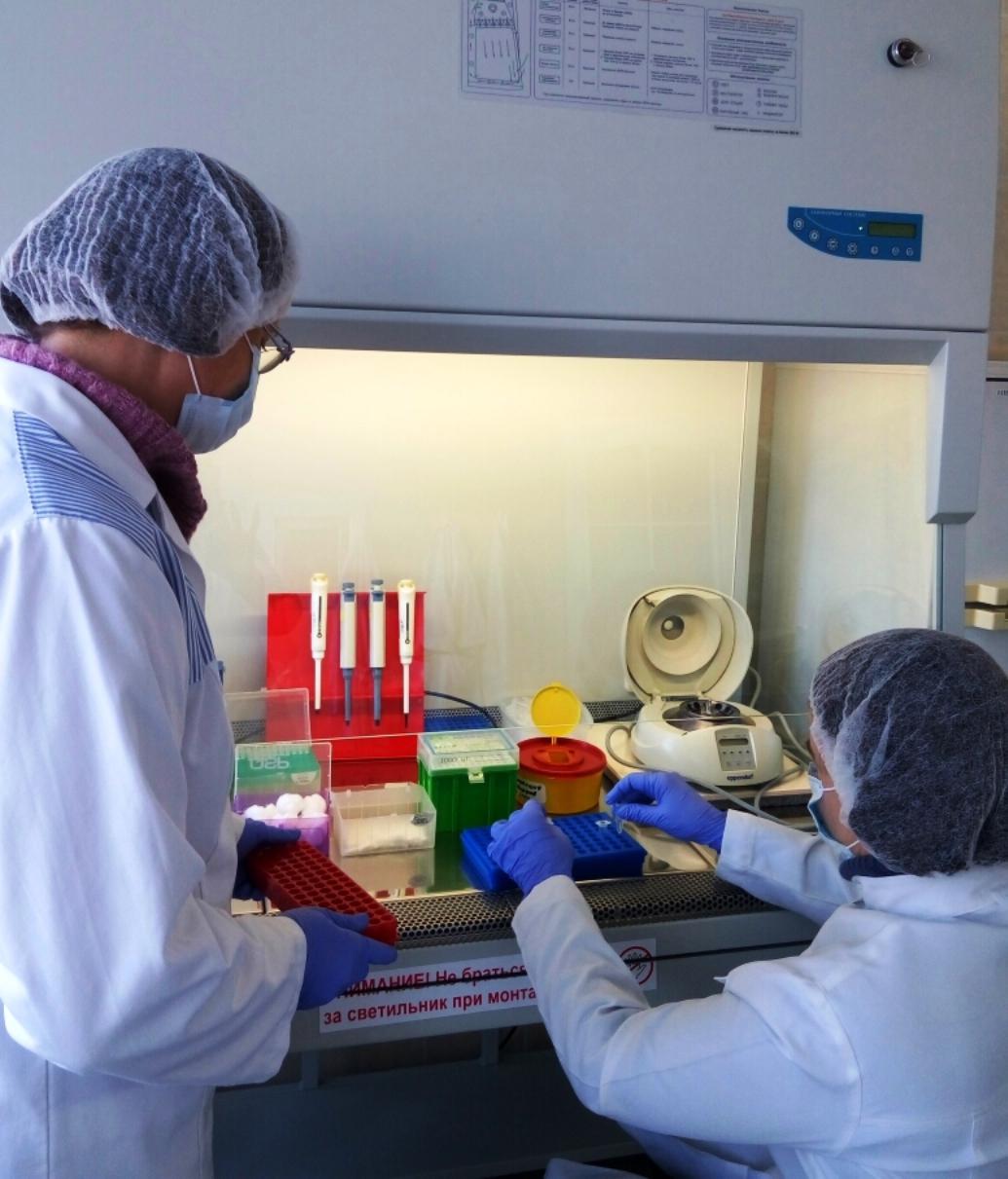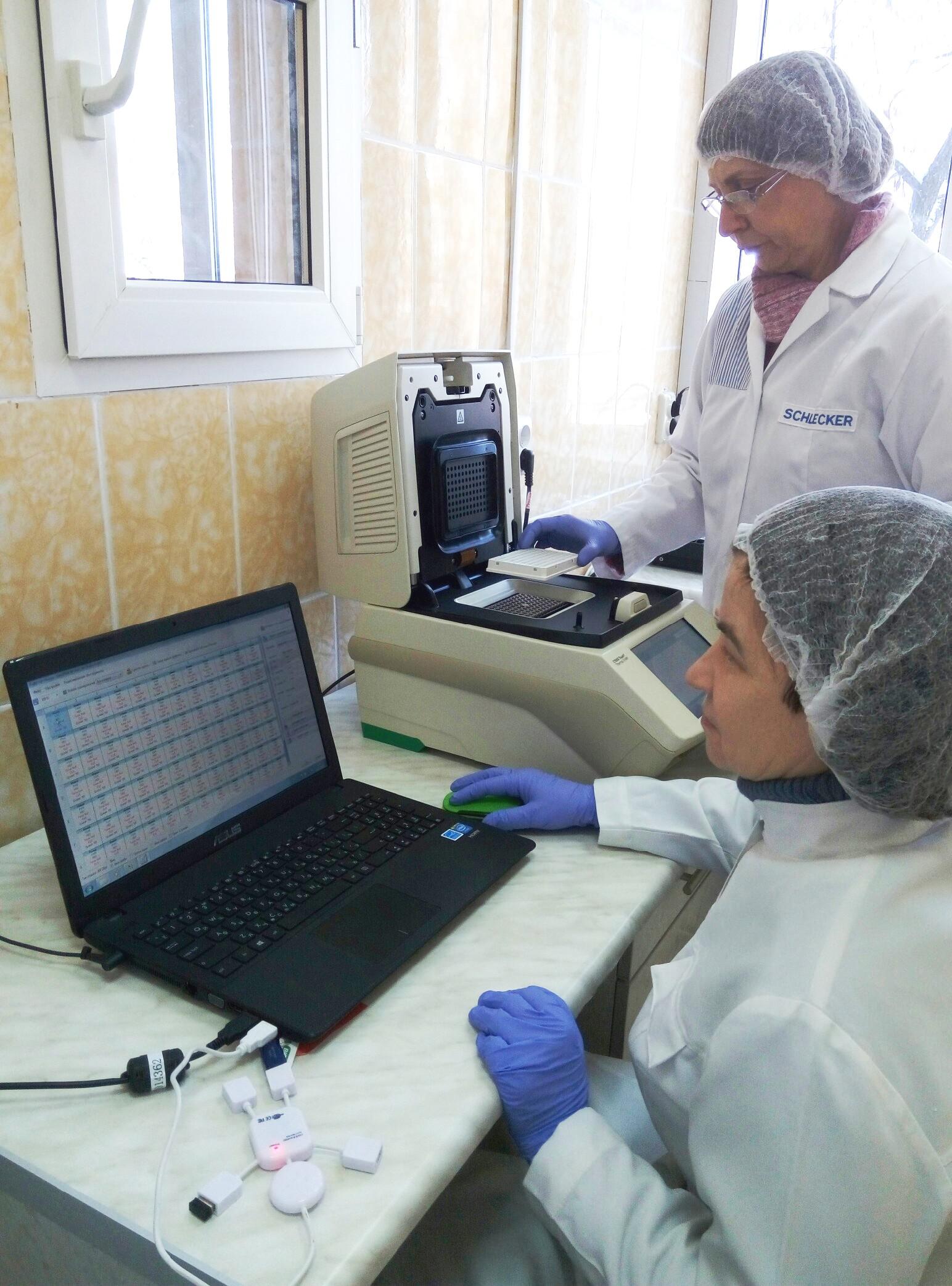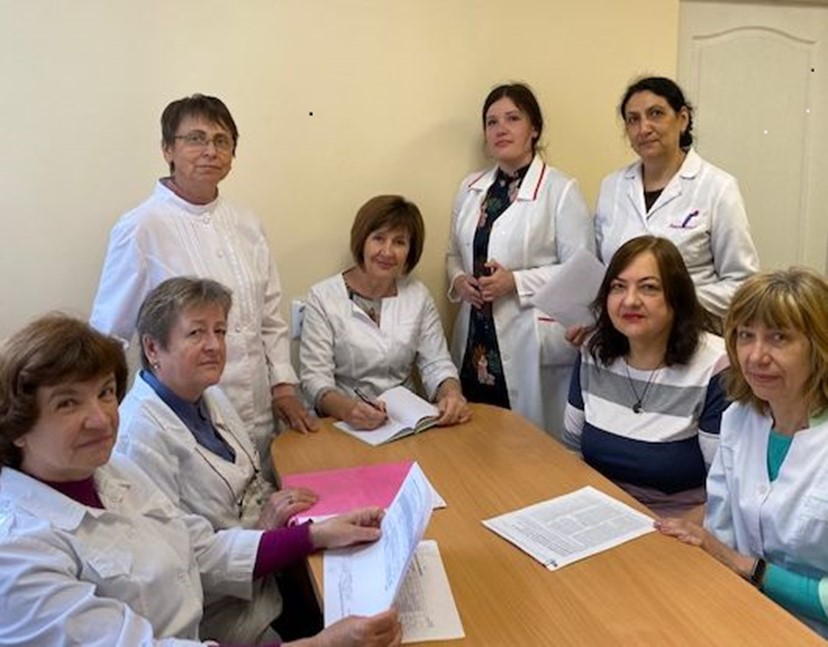

L.T.Mala Therapy National Institute of the National Academy of Medical Sciences of Ukraine
(L.T.Mala NIT NAMSU)
(057) 373-90-00 (057) 373-90-50
nit_pr@ukr.net
therapy@amnu.gov.ua



(057) 373-90-00 (057) 373-90-50
nit_pr@ukr.net
therapy@amnu.gov.ua

The laboratory of immuno-biochemical and molecular-genetic researches was created on the basis of the laboratory of biochemical and immuno-enzymatic methods of research, which was organized in 1982. The laboratory was headed by: PhD (Medical Sciences) Lazareva S.A. (1982-1988), PhD (Biological Sciences) Bakhova L.K. (1988-1991), PhD (Biological Sciences) Samokhina L.M. (1999-2004), Doctor of Biological Sciences Kolodub F. A. (1991-1999, 2004-2007), Doctor of Medical Sciences Kondakov I.K. (2007-2009), PhD (Biological Sciences) Bondar T.M. (2009-2010), Borisova O.L. (2010-2012). From 2013 to the present the laboratory is headed by PhD (Biological Sciences) Galchinskaya V.Yu.
The laboratory is provided with modern measuring equipment such as: real-time PCR product detection system CFX96 Touch (Bio-Rad, USA), fluorometer Qubit 3.0 (Life Technologies), complex of devices for enzyme immunoassay (immune enzyme analyzer Immunochem-2100, microplate washer, shaker and incubator, manufactured by High Tehnology inc., USA), biochemical analyzer CHEM-7 (Erba Lachema, Czech Republic), microscope with computer visualization system (Micros, Austria), platelet aggregation analyzer AP 2110 (Solar, Belarus), centrifuges, low temperature refrigerators (minus 80 oC), laminar boxes of biological safety.
The laboratory is certified for the right to determine more than 70 indicators of functional and metabolic status of internal organs by modern molecular genetic, immunoassay, biochemical and cytological methods.
Tasks and functions:
- investigation of molecular-genetic, immuno-biochemical and cytological markers, which reflect the state of the cardiovascular system, the gastrointestinal tract, liver, kidneys and lungs in accordance with the intention, tasks and plan of the Institute's research;
- introduction of new, the most appropriate methods for achievement of research tasks with higher analytical accuracy and diagnostic reliability, accomplishment of their reproduction by controlling and assessing the quality of laboratory research at the preanalytical, analytical and post-analytical stages;
- improvement of the laboratory research quality in accordance with the good laboratory practice standards on the basis of the reference values assessment, accurate control of reagents, internal audit and continuing professional development of employees;
 Isolation of nucleic acids from cells
Isolation of nucleic acids from cells
- observance of patient's rights, compliance with deadlines, ethic’s requests, confidentiality and safety at all stages of laboratory research;
- documentation of the procedure and results of studies, interpretation of the obtained results and promoting of their effective use in scientific research;
- publication of research results in professional; Ukrainian and international scientific journals;
- presentation of obtained laboratory results and their interpretation at scientific congresses, conventions and scientific-practical conferences.
The main fields of the laboratory’s research activity are:
- studying occurrence and chronicity indicators of the cardiovascular system, gastrointestinal tract, lungs and kidneys non-infectious diseases using modern molecular genetic, enzyme-linked immunosorbent assays, biochemical and cytological methods;
- development and introduction of modern molecular-genetic, biochemical, immuno-enzymatic and cytological methods for the study of molecular and cellular mechanisms of internal organs diseases occurrence and chronicity;
- in-depth study of microbiota, micro-RNA levels and expression of genes, responsible for production of factors associated with the beginning and progression of the internal organs non-infectious diseases;
- detection of total DNA methylation, length of end regions of chromosomes - telomeres and telomerase activity (enzyme that prevents their shortening) as genetic and epigenetic markers of metabolic-associated diseases;
 Real-time PCR reaction
Real-time PCR reaction
- expansion the range of gene polymorphisms, associated with the risk of non-infectious diseases of internal organs, to create a program of primary and secondary prevention of these diseases, and genes, that control the synthesis and activity of enzymes of drug’s biotransformation, for the selection of pharmacotherapy depending on the genetic profile;
- creation of adequate diagnostic panels for the comprehensive assessment of human homeostasis and the presence of risk factors for the development of the internal organs diseases based on the results of the humoral status study in combination with molecular genetic analysis of gene polymorphism, telomere lengths and RNA and micro-RNA expression.
The most important results of scientific research:
As a result of the scientific activity, 5 monographs, over 700 articles have been published in scientific medical journals. The total of 85 authorship certificates and patents were obtained. Over the period of the laboratory’s existence, 6 PhD and 2 doctoral theses have been defended.
 The staff of the laboratory
The staff of the laboratory
The staff of the laboratory:
L.T.Malaya Therapy National Institute of the National Academy of Medical Sciences of Ukraine
(057) 373-90-50
(057) 373-90-67
2 а, Lyubovi Maloy ave., c. Kharkiv, 61039, Ukraine